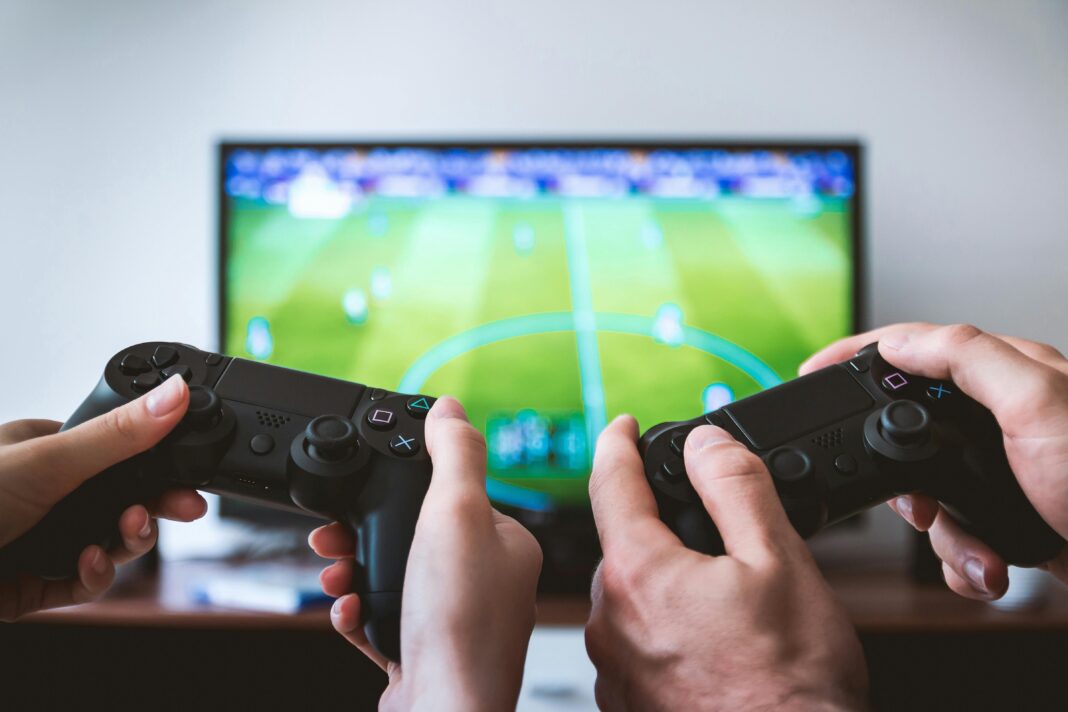The Modern Gamer’s Dilemma
Gaming has evolved from a niche hobby to a mainstream form of entertainment, with millions of players worldwide dedicating hours to immersive virtual worlds. While gaming offers numerous benefits—stress relief, cognitive stimulation, and social connections—it also poses challenges when it begins to overshadow real-life responsibilities.

The key to sustainable gaming lies in balance. Without proper time management, gaming can negatively impact work, education, health, and relationships. This guide provides an in-depth, step-by-step approach to enjoying gaming while maintaining a fulfilling, well-rounded life.
Section 1: Understanding the Need for Balance
1.1 The Psychological Impact of Gaming
Gaming triggers dopamine release, creating a sense of achievement and pleasure. However, excessive gaming can lead to:
- Addiction-like behaviors (neglecting responsibilities, withdrawal symptoms when not playing)
- Increased stress when gaming replaces problem-solving in real life
- Escapism as a way to avoid real-world challenges
Solution: Recognize when gaming shifts from recreation to dependency. Self-awareness is the first step toward balance.
1.2 Physical Health Risks of Excessive Gaming
Prolonged gaming sessions contribute to:
- Poor posture & chronic pain (text neck, carpal tunnel syndrome)
- Eye strain & sleep disruption (blue light exposure, irregular sleep cycles)
- Sedentary lifestyle risks (weight gain, cardiovascular issues)
Solution: Incorporate movement, proper ergonomics, and screen-time breaks.
1.3 Social & Professional Consequences
- Neglected relationships (family, friends, partners feeling ignored)
- Declining work/school performance (missed deadlines, lower productivity)
- Financial strain (overspending on microtransactions, neglecting bills)
Solution: Set boundaries to ensure gaming doesn’t interfere with personal and professional growth.
Section 2: Time Management Strategies for Gamer
2.1 Prioritizing Responsibilities
Before gaming, complete essential tasks:
- Work/Study: Finish assignments, meetings, or projects first.
- Chores: Clean, cook, or run errands to avoid last-minute stress.
- Self-Care: Exercise, meditate, or engage in hobbies outside gaming.
Pro Tip: Use the “Eisenhower Matrix” to categorize tasks by urgency/importance.
2.2 Structured Gaming Schedules
- Fixed Time Blocks: Example: “Only game after 8 PM on weekdays.”
- Time-Tracking Apps: RescueTime, Toggl, or Forest to monitor usage.
- Reward System: “After 3 hours of studying, I get 1 hour of gaming.”
2.3 The Pomodoro Technique for Gamers
- Work/study for 25 minutes, then take a 5-minute break (stretch, hydrate).
- After four cycles, take a 30-minute break (can include a short gaming session).
Section 3: Health & Wellness for Gamer
3.1 Combatting Physical Strain
- Ergonomic Setup: Adjust chair height, monitor position, and wrist support.
- 20-20-20 Rule: Every 20 minutes, look at something 20 feet away for 20 seconds.
- Stretching Routine: Target wrists, neck, and back to prevent stiffness.
3.2 Mental Health Maintenance
- Mindful Gaming: Avoid using games as emotional crutches.
- Digital Detox Days: Designate screen-free days to reset.
- Social Balance: Ensure offline interactions aren’t replaced by online ones.
3.3 Sleep Optimization
- No Gaming 1 Hour Before Bed: Blue light disrupts melatonin production.
- Night Mode Settings: Enable red-light filters on devices.
- Consistent Sleep Schedule: Aim for 7–9 hours nightly.
Section 4: Social & Relationship Management
4.1 Communicating with Non-Gamers
- Explain gaming’s value without dismissing concerns.
- Schedule quality time with loved ones (e.g., “No gaming on Sundays”).
4.2 Multiplayer Etiquette & Real-Life Balance
- Set boundaries with online friends (“Can’t raid tonight, have family dinner”).
- Avoid canceling real plans for in-game events.
4.3 Gaming Together IRL
- Host local co-op nights with friends.
- Attend gaming conventions to blend virtual and real-world socializing.
Section 5: Avoiding & Overcoming Gaming Addiction
5.1 Warning Signs
- Losing track of time consistently.
- Neglecting hygiene, meals, or sleep for gaming.
- Defensiveness when confronted about playtime.
5.2 Steps to Reduce Dependency
- Replace Gaming with New Hobbies: Sports, music, or creative arts.
- Accountability Partners: Friends/family who check in on habits.
- Professional Help: Therapists specializing in digital addiction.
Section 6: Long-Term Sustainable Gaming
6.1 Setting Yearly Goals
- Career/Education First: “I’ll only game after securing that promotion.”
- Fitness Milestones: “Complete a 5K before buying the next game.”
6.2 Financial Responsibility
- Budget for games/microtransactions separately from essentials.
- Avoid impulse purchases; use wishlists to prioritize.
6.3 Evolving with Life Stages
- Adjust gaming time as responsibilities grow (parenthood, career demands).
- Shift from competitive to casual gaming if needed.
FAQ: Common Gaming Balance Questions
Q1: How much gaming is too much?
A: If it interferes with daily obligations or health, it’s excessive. Track hours weekly.
Q2: Can gaming be a career without sacrificing balance?
A: Yes, but pro gamers schedule practice like athletes—with rest and recovery periods.
Q3: How do I say no to friends who want to game all night?
A: Be honest: “I have an early day tomorrow, but let’s play earlier next time.”
Q4: Are some games more addictive than others?
A: Yes—live-service games (MMOs, gacha) use psychological hooks. Set stricter limits for these.
Q5: My partner hates my gaming. How to compromise?
A: Dedicate specific times for gaming and undistracted time for them.
Conclusion: Mastering the Balance
Gaming is a rewarding hobby, but like all things, moderation is crucial. By implementing structured schedules, prioritizing health, and nurturing real-world connections, you can enjoy gaming without compromising your life goals.
Ready to take control? Start today by auditing your current gaming habits and making one small change. Your future self will thank you.

